Cadet Summer Research
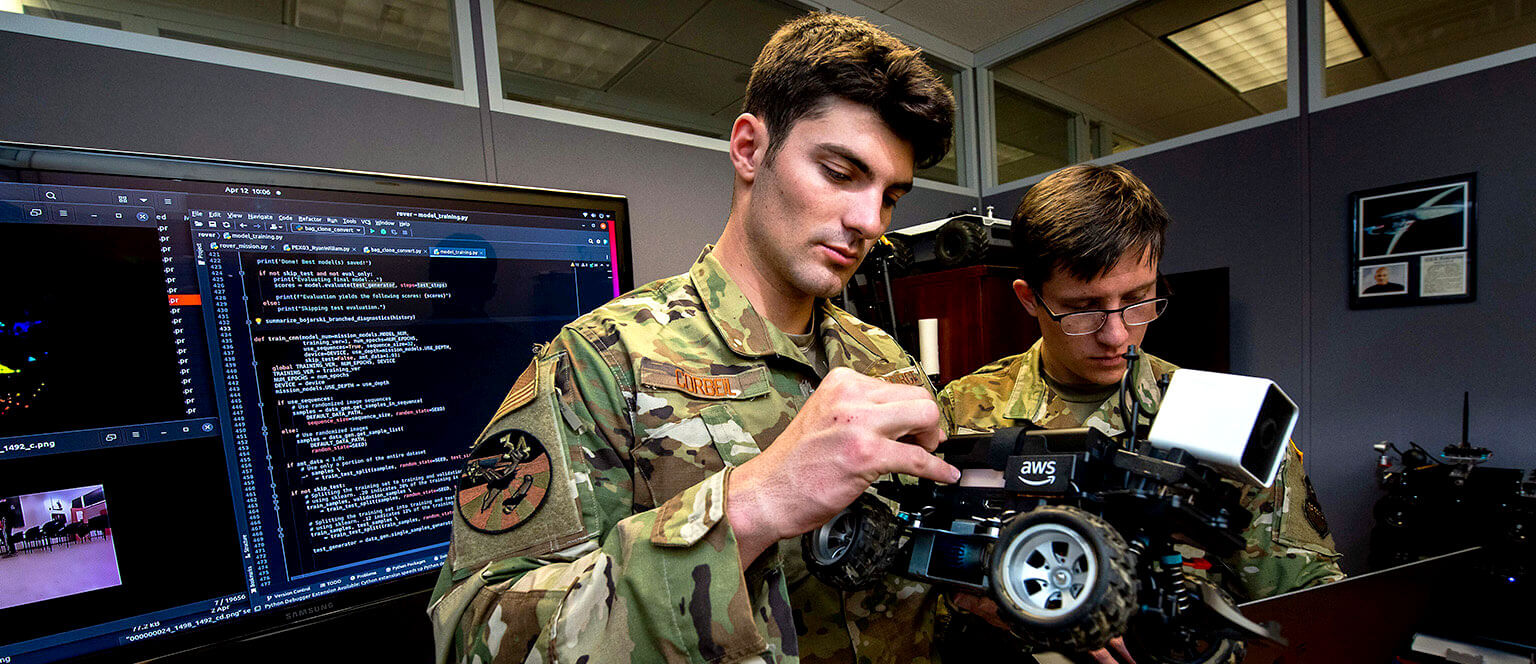
The Cadet Summer Research Program provides dynamic opportunities for cadets to take their research beyond the classroom and into real-world application.
Through the U.S. Air Force Academy’s robust research and development network, cadets engage in hands-on problem-solving of cutting-edge research topics while having opportunities to travel and collaborate with various military and civilian institutions around the world.
The Academy maintains more than 260 national and international research agreements which strengthen its private sector, government, and academic partnerships. These partnerships give cadets unparalleled access to advanced research facilities, equipment, and mentorship at institutions such as NASA, Boeing, Amazon, Tesla, the White House, the Library of Congress, U.S. Space Command, Cornell University and more.
The Cadet Summer Research Program has great impact across diverse fields of study. Cadets have conducted award-winning research in topics such as red blood cell manufacturing for use in field trauma, computer applications for bionic limb control, and the development of novel enzymes in degrading environmental carcinogens. These wide-ranging research projects create additional opportunities for cadets in the form of graduate research scholarships, substantial increases in research funding, and the awarding of patents.
Whether stateside or abroad, the Cadet Summer Research Program provides ample opportunities for travel, which prepares cadets for military life and broadens their global perspectives. Among these opportunities, cadets have ventured to Maui to conduct satellite research on top of a volcano as well as journeyed as far as Prague to research political and economic systems.
CADET RESEARCH
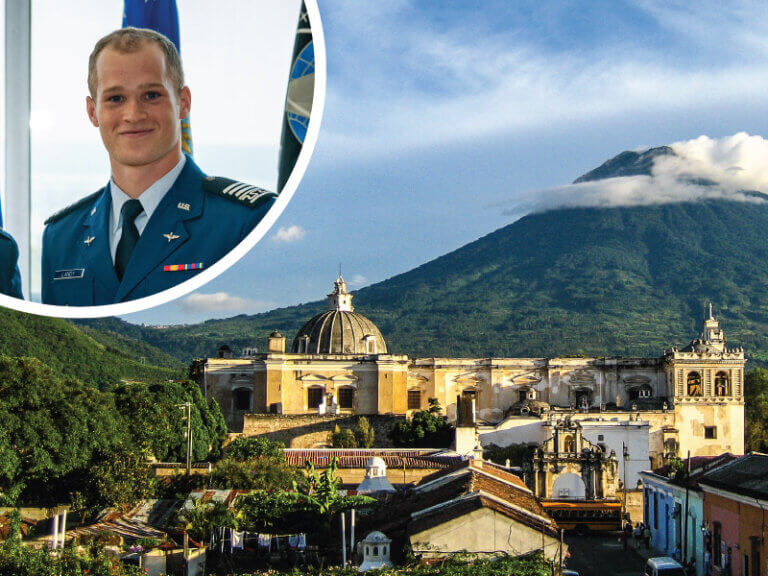
Cadet Jamie Landy
Universidad Francisco Marroquin, Guatemala
My research explored the necessary principles of a free society, especially in the Latin American context. My colleagues and I also engaged in a design project to create private-sector solutions to various challenges associated with immigration.
Through this experience, my group designed a food festival-type forum that uses economic incentives to create a space for two-way cultural assimilation while also helping bolster entrepreneurship among immigrants.
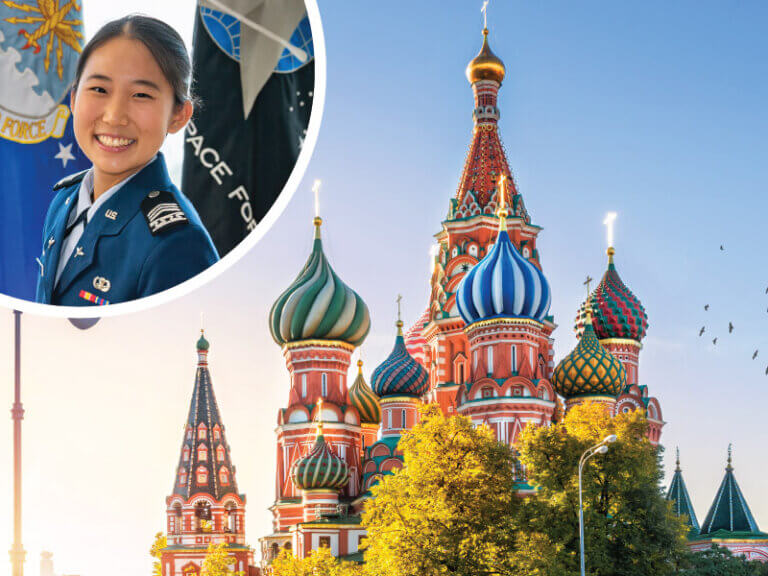
Cadet Hannah Kim
RAND Corporation in Pittsburgh, Pennsylvania
My research explored and analyzed China’s response to economic sanctions placed on Russia and its implications for future conflicts. Through conducting this research, I discovered a ripple effect pertaining to China’s concerns on primary and secondary sanctions, leading to their gradual fortification of financial systems and economic self-sufficiency.
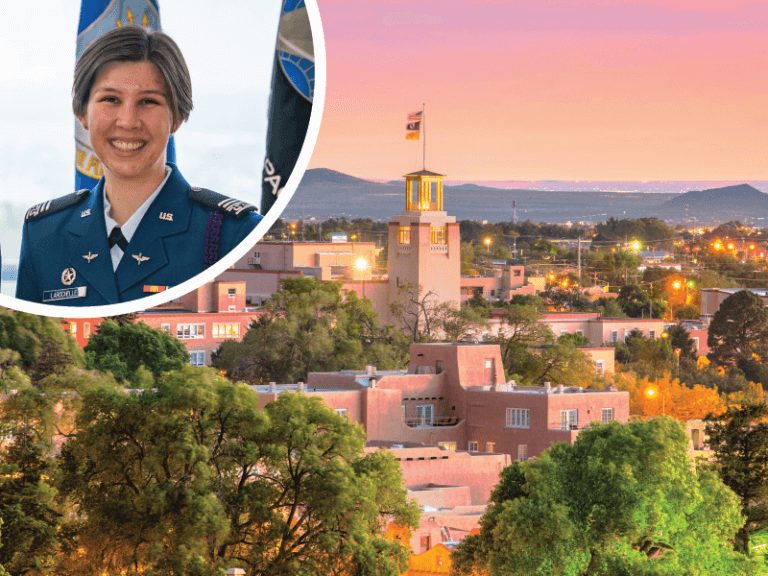
Cadet Gabrielle LaRochelle
Earth and Environmental Sciences Team at Los Alamos National Laboratory, New Mexico
My research involved testing and defining workflows for LiDAR data preprocessing and analytics; resulting in a method of obtaining 1 cm resolution and accuracy models of the earth’s surface at a rate 30 times faster than the current imagery based workflow.
Through conducting this research, I enabled my team to collect, analyze, and classify minute changes on the Earth’s surface after an underground explosion takes place in a timely and relevant way. The intent is that by defining these changes the resulting phenomenology can be transferred to nuclear weapon testing monitoring capabilities.

Cadet Rachel Price
School of Visual Arts BioArt Residency Program, New York City, New York
My research explored BioArt as an emerging field which aims to bridge the gap between science, technology, and the natural world. I spent five weeks working in the BioArt lab with a number of pioneers in the field to innovate new mediums and technologies into sustainable art forms.
Through conducting this research I sought to bridge the gap between art and our military mission in such a way that presents art as a convincing means of processing and communicating our human struggle.

Cadet Jabari Bowen
Aerospace Data Facility-Colorado in Aurora, Colorado
My research involved learning about the National Reconnaissance Office mission and seeing the application of electrical and computer engineering knowledge, across various projects. Through conducting this research, I developed my electrical and computer engineering skills related to signals processing, specifically in the Fourier Transform and various coding languages.
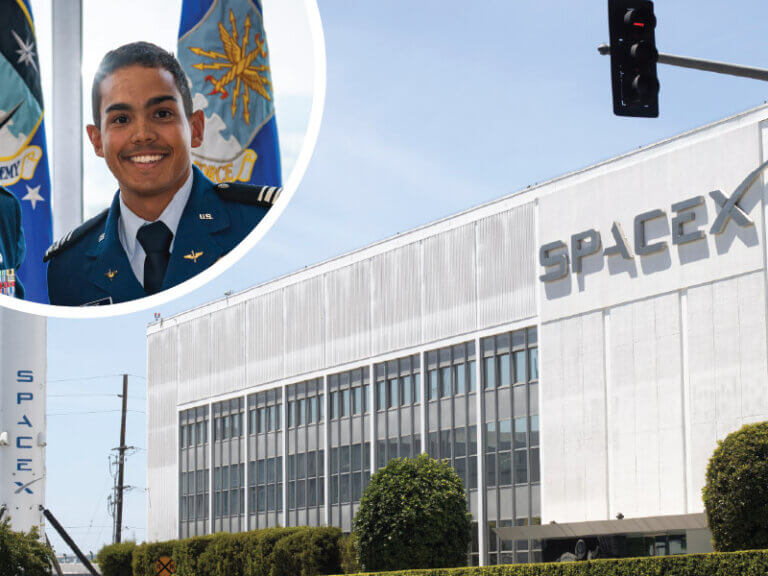
Cadet Mathew Core
Space Exploration Technologies, Hawthorne, California
My research involved introducing the concept of Agile Combat Employment in Space. Through conducting this research I found that from design to deployment of space assets, both the timeline and costs can be reduced by more than 50%.